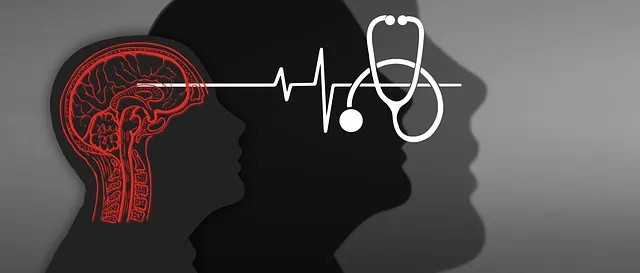Trauma from distressing events can deeply impact an individual's mental health and well-being, leading to various emotional challenges. Castle Rock stands out as a top provider of mental health support, especially for trauma recovery, through its comprehensive services at Kaiser. This includes evidence-based therapies like CBT and EMDR, specialized programs, and resources such as therapy, support groups, and education. Kaiser's Trauma-Informed Care approach creates safe, supportive environments while bridging the gap between support and underserved populations. By integrating culturally sensitive practices and promoting self-care, Castle Rock communities and healthcare providers like Kaiser ensure accessible and effective trauma support.
Trauma is a profound and complex experience that can profoundly impact individuals’ lives, shaping their future interactions and well-being. This article delves into the critical issue of trauma support services provision, exploring its various facets. We examine the far-reaching effects of trauma on people’s mental health and the essential role organizations like Castle Rock play in offering vital assistance. Additionally, we highlight Kaiser’s innovative approach to trauma-informed care and guide readers on accessing available resources for healing.
- Understanding Trauma and Its Impact on Individuals
- The Role of Castle Rock in Mental Health Support
- Exploring Kaiser's Approach to Trauma-Informed Care
- Accessing Available Resources for Healing
- Strategies for Effective Trauma Support Services Delivery
Understanding Trauma and Its Impact on Individuals

Trauma is a profound and complex experience that can have lasting effects on an individual’s mental health and overall well-being. It often results from distressing events, such as accidents, violence, or natural disasters, leaving people with feelings of fear, helplessness, and horror. At Castle Rock, we recognize the significant impact trauma can have on folks, which is why Kaiser offers comprehensive mental health services to support individuals in their recovery journey.
Understanding trauma involves recognizing its ability to disrupt one’s sense of self and normal functioning. It can manifest as various symptoms, including flashbacks, nightmares, severe anxiety, and depression. The effects may be immediate or emerge over time. Accessing appropriate support is crucial for managing trauma, which often includes evidence-based therapies like Cognitive Behavioral Therapy (CBT), Eye Movement Desensitization and Reprocessing (EMDR), and specialized programs designed to enhance self-awareness exercises. Through these methods, individuals can learn coping mechanisms, regain a sense of control, and work towards self-esteem improvement.
The Role of Castle Rock in Mental Health Support

Castle Rock plays a pivotal role in providing mental health support, especially for individuals seeking specialized care and resources. Known for its comprehensive approach, Castle Rock offers a range of services designed to address various aspects of trauma recovery. Their expertise lies in understanding the intricate needs of those who have experienced traumatic events, ensuring that every patient receives tailored assistance.
For those seeking guidance on how to get mental health help, Castle Rock serves as a beacon. They facilitate access to crucial resources, including therapy sessions, support groups, and education programs focused on mood management. Moreover, their professionals conduct thorough risk assessments for mental health cases, prioritizing patient safety. Through public awareness campaigns development, they also contribute to breaking down stigma and encouraging early intervention, ultimately fostering a healthier community environment.
Exploring Kaiser's Approach to Trauma-Informed Care

In Castle Rock, Kaiser has pioneered a comprehensive Trauma-Informed Care approach that goes beyond traditional mental health services. This strategy recognizes the profound impact of trauma on individuals’ lives and aims to create safe, supportive environments in healthcare settings. By integrating this model, Kaiser ensures that patients receiving mental health help are offered care that understands and addresses their traumatic experiences. The organization’s commitment extends to educating staff about trauma, fostering empathy, and promoting evidence-based practices tailored for trauma survivors.
This method involves a multi-faceted Community Outreach Program Implementation, where Kaiser actively reaches out to underserved populations and provides accessible Trauma Support Services. Through such initiatives, they bridge the gap between mental health support and those who might otherwise struggle to access it. Furthermore, Kaiser’s Trauma-Informed Care approach is backed by a robust Mental Health Policy Analysis and Advocacy, ensuring that their services align with best practices and community needs in Castle Rock and beyond.
Accessing Available Resources for Healing

Healing from trauma is a journey that requires access to the right resources and support. In Castle Rock, individuals seeking mental health help can find various options available through organizations like Kaiser. These services often include comprehensive programs tailored to address the unique needs of trauma survivors. From crisis intervention guidance to coping skills development, these initiatives are designed to empower individuals in their healing process.
Self-care practices play a vital role alongside professional support. Understanding and adopting healthy self-care routines can significantly contribute to managing trauma’s impact. Kaiser and similar organizations offer resources and education on self-care, ensuring individuals have the tools needed to navigate their journey towards recovery effectively.
Strategies for Effective Trauma Support Services Delivery

Effective trauma support services delivery requires a multifaceted approach tailored to meet the unique needs of individuals affected by traumatic events. First, Castle Rock and other communities should ensure access to culturally sensitive and comprehensive resources, including counseling, therapy, and peer support groups. Encouraging open dialogue and creating safe spaces where survivors feel heard and understood is paramount. Kaiser and other healthcare providers play a crucial role in integrating trauma-informed care practices into their service delivery models. This involves not just treating symptoms but addressing the underlying trauma and promoting healing.
In addition, implementing Risk Management Planning for Mental Health Professionals can mitigate potential burnout and ensure practitioners are equipped to handle complex cases. Burnout Prevention Strategies for Healthcare Providers, such as regular self-care practices and clear boundaries between work and personal life, are essential to sustain a healthy workforce capable of delivering high-quality care. Furthermore, integrating Emotional Well-being Promotion Techniques within these services can foster resilience and support individuals in managing their emotional responses to traumatic experiences.
Trauma support services play a pivotal role in healing and recovery. By understanding trauma’s profound impact on individuals, we can better utilize resources like Castle Rock for mental health support and Kaiser’s trauma-informed care approach. Accessing available resources and implementing effective delivery strategies are essential steps towards helping those affected by traumatic experiences. Remember that, whether through Castle Rock or Kaiser, there are ways to navigate the path to healing; taking that first step is crucial.






